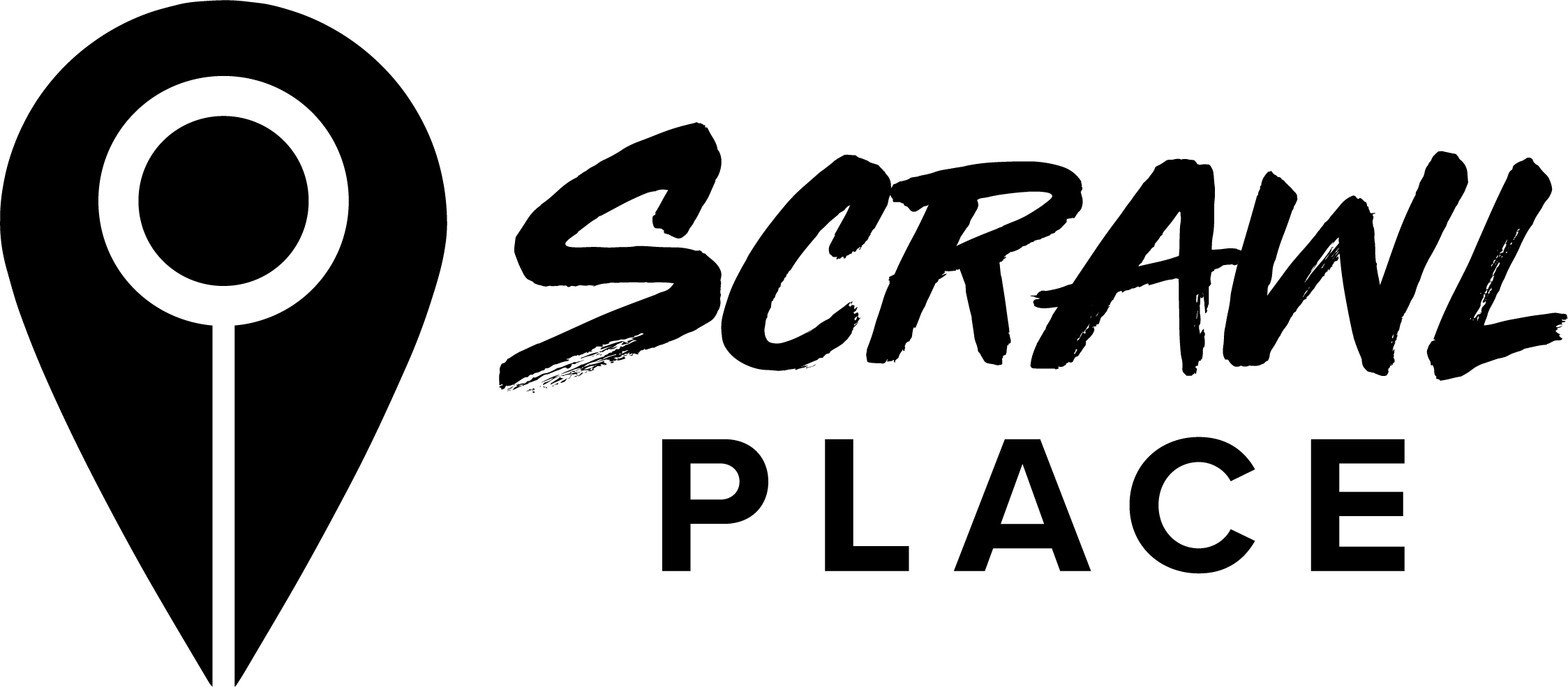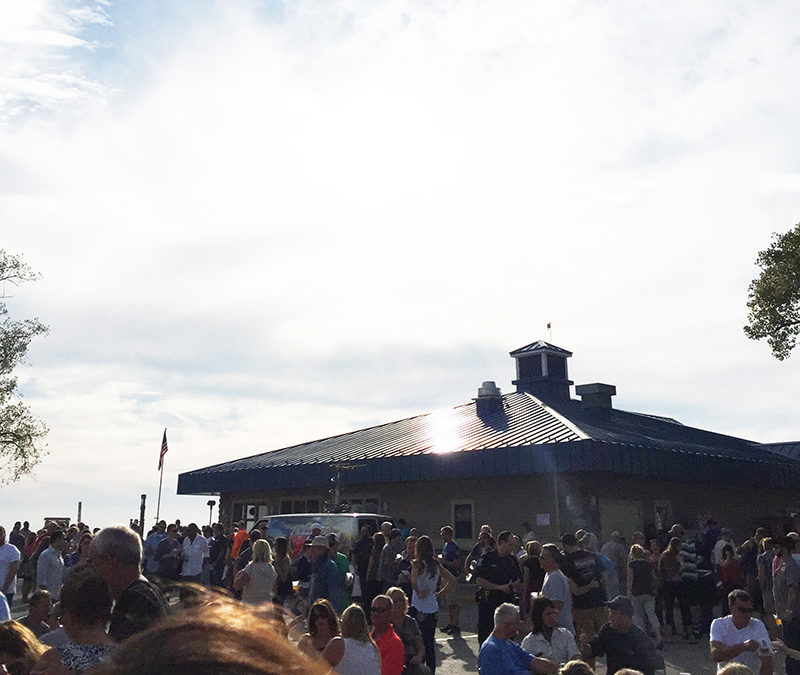Before the asteroid hits, we pack up the car. Swimsuits and sun hats, coloring books, a fully stocked diaper bag, though the toddler is almost potty trained—another week or two and she would’ve had it. The pills you stole from the med room at work, just in case. Trail mix, iced coffee, a bag of citrus fruits. By the time we merge onto 90, you’re already peeling a tangerine, spattering the passenger seat with juice. The toddler’s head lolls forward, heavy with sleep. The seven-year-old squirms in his booster seat, asking how much longer. In the sky above us, the asteroid burns.
The traffic isn’t as bad as we expected. Not the gridlock of apocalypse movies. More like Labor Day weekend—slow places like clotted arteries, some extra traffic as we swing around Chicago. The skyline reminds us of a cemetery, the buildings like headstones draped in fog. We remember our day trip last spring: a few hours at the Shedd Aquarium, then back home before bedtime. The seven-year-old was going through a cephalopod phase, and we spent half an hour staring into the Oceans exhibit, searching for the giant Pacific octopus. We saw the leopard sharks gliding above the sand, the horn sharks looking sideways at us through slitted eyes, the seahorses with tails curled around yellow kelp. But no cephalopods. We learned later that octopuses change color to camouflage. They can squeeze their entire bodies through holes smaller than a lemon, pour themselves out like honey from a jar.
“We’ll see it someday,” we told our son, as he blinked back disappointment. “There’s always next time.”
As it turns out, there won’t be a next time after all. But our seven-year-old doesn’t talk about cephalopods anymore. He’s almost eight, and he has moved on to whales. He lists them off while we drive: belugas, which are more graceful than you’d imagine for something that weighs more than three thousand pounds. Orcas, which are technically dolphins, but dolphins are a subset of toothed whales, so it all comes full circle. Blue whales, the largest animal that has ever lived. He tells us which ones are endangered, and which are only threatened or vulnerable. He looks out the window, searching for whales in the clouds.
“There’s two suns,” he tells us. “Should we make a wish?”
We tell him, yes, why not. It couldn’t hurt.
When we turn onto Lake Street, the road starts to look more like what we imagined—cars bumper-to-bumper, some of them abandoned. We leave our SUV to bake in the August sun. You carry the toddler, and I hold the seven-year-old’s hand, and we weave through the cars, the gridlocked parking lot. We hear it before we see it—that vast, steady crashing.
It all looks how we remember it: the building with its cheerful blue roof, and the sand dunes spilling down to Lake Michigan, and the boardwalks unfolding like scaffolding. There’s a yellow flag up: swim with caution. We’ve always found people swimming here, even on red flag days. There are no lifeguards on duty. We spread out our picnic blanket near the water. The toddler scoops up the sugar-white sand, and it takes several tries to convince her not to eat it.
“Mom,” our son says, “are there squids out there? And octopuses?”
“Maybe, sweetheart.”
“What about mosasaurs?”
“Well . . . those are extinct.”
“Could there be whales?”
I should tell the truth. How can one of the last things I say to him be a lie? But his eyes are so bright, full of anticipation, and what good is scientific accuracy now? He won’t be a whale trainer, or a cetologist, or anything other than what he is now.
“There could be.”
“Really?”
“Keep your eyes open. Maybe you’ll spot one.”
On the blankets around us, a few people are eating ice cream. This seems impossible—who would still be working a concession stand at the end of the world? But the kids are begging, so I leave them with you, and I go up to the building to investigate.
A line spirals out of the entrance. Inside, a middle-aged man with a beard is perched behind the counter, slinging ice cream. I don’t think he works there, not officially. He’s not taking money. The power is out, but somehow the ice cream is still cold.
God loves you, he says, with each scoop, God loves you, over and over.
When it’s my turn, I stand there, frozen. There are too many choices—strawberry, blue moon, mint chocolate chip, rocky road. I’ve heard the icebreaker question a million times—What’s your favorite ice cream flavor?—but I can’t remember how I used to answer. In a panic, I choose pistachio, even though I’ve never tried it before and suspect I won’t like it. I decide on blue moon for the kids, and the man gives me a whole pint.
“God loves you,” he says, and normally I would ask him to keep his religion to himself, but we’re all about to die. He’s giving away free ice cream.
“She loves you too,” I tell him.
The ice cream is perfect, creamy and sweet. I head back down to the beach, the pint cradled in the crook of my elbow. The heat seems to be intensifying, and for a second I think it’s happening—the lake boiling, the trees turning to ash, along with all our bodies—but the asteroid looks more or less the same. The air is clean and easy to breathe.
I’m still looking up when the seven-year-old finds me. He doesn’t even notice the ice cream. He grabs my hand, points out at the waves.
“Mom!”
I follow his gaze. The water is dotted with people, jumping through waves, floating on rafts, standing knee-deep and letting their bodies adjust to the shock of cold. But our son is pointing even farther out, past the swimmers. Past the drop-off. My mind registers it gradually: a dark, sloped shape rising from the blue.
An old shipwreck uncovered by the waves, I tell myself. A trick of the light.
I’m about to explain this to him when we both see it—the spray of water shooting twenty feet up, shimmering with sunlight, then dissolving.
“Mom.” He’s stunned. “What was that?”
I don’t know how to answer. Of course it couldn’t be a whale. This is a freshwater lake. The largest fish around here are carp and lake trout. The nearest ocean is a hundred miles away.
When the whalesong starts, low and gentle at first, then rising like a siren, I don’t bother trying to explain it. Not even to myself. The people in the water have stopped to listen, some of them stumbling—they can hear it too, whatever it is. The dark shape slips back under the surface and out of sight. Overhead, like a tangerine ripening on its branch, the asteroid grows.
Lindy Biller grew up in Metro Detroit and now lives in Wisconsin, with Weko Beach serving as the perfect halfway point on summer road trips back home. Her fiction has recently appeared in Passages North, The Masters Review, Sunlight Press, and Cobra Milk. She can be found on Twitter and Instagram at @lindymbiller.

